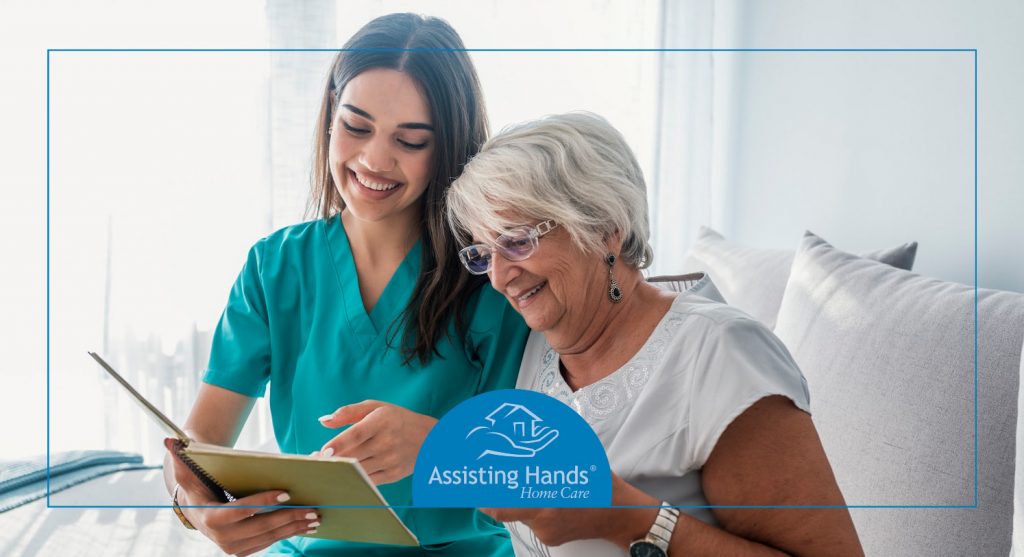The sunny days and hot temperatures of summer are inviting. But for older people, the heat and the sun’s ultraviolet rays can be dangerous. Caregivers are urged to take extra precautions during these blistering months to keep their elderly care recipients and themselves safe.

The aging process alters the way seniors respond to summer heat and humidity. Older adults are more sensitive to summer conditions due to the physiological changes that naturally accompany aging. They simply do not adjust to drastic fluctuations in temperature as well as younger people.
Seniors are also more likely to suffer from a chronic medical condition that changes their normal bodily response to summer heat. Similarly, aging people are likely to take prescription medications that impact how well their bodies control temperatures as well as their ability to sweat.
The ability to sense thirst also diminishes with age, leading older people to become more susceptible to dehydration when the weather is scorching outside. Social isolation, which many seniors commonly experience, causes them to be more vulnerable to heat-related illnesses.
Caregivers must protect their elderly care recipients from the effects of hot summer weather. Preparation is key so that seniors continue to remain safe while still having the ability to enjoy all the outdoor and indoor activities that summer has to offer.
Tip 1: Hydrate
Hydration is paramount during the hot, dry days of summer. Serve water or healthy beverages, like Gatorade; the latter drink is especially important when the senior sweats excessively or has diarrhea, as it replenishes the body’s stores of sodium, potassium, and other electrolytes.

If water is too plain, drop a few berries to give it zesty flavor. Caregivers should carry water bottles for the senior and themselves when they head outdoors. Hydration can also be achieved by munching on foods that have a high water content, like watermelon, cucumbers, or tomatoes.
Tip 2: Wear Sun Protection
Sun protection comes in various forms and shields the aging body from the harmful effects of the sun’s UV rays. Lather broad spectrum, high-SPF sunscreen to the senior’s skin before heading outside. Provide the senior with a wide-brimmed hat to limit sun exposure.
Sunglasses, too, are essential for seniors. A pair of shades protects the skin around the senior’s eyes. Set out loose-fitting, light-colored clothing for the elderly person to wear. Light colors reflect the sun’s rays, while loose-fitting clothes help the senior stay cool and comfortable.
Tip 3: Stay Indoors Midday
The summer sun is strongest between 10 am and 4 pm. During these midday hours, spend time inside an air-conditioned space. Caregivers who’d like their elderly care recipient to have time outdoors should schedule activities during early morning or late evening hours.

If the senior’s home does not have air conditioning, safe alternatives are available. Community cooling centers, shopping malls, libraries, museums, and community centers are places that remain cool during the intense daytime summer heat and simultaneously serve as social outlets for seniors.
Tip 4: Watch for Signs of Hyperthermia
Advancing age can increase the chances of hyperthermia, which occurs when the body fails to regulate temperatures effectively, leading to an above-normal body temperature. Symptoms to be vigilant for include excessive sweating, fatigue, intense thirst, dizziness, vomiting, and cool, clammy skin.
A severe form of hyperthermia is a heat stroke. Dehydration and a rise in body temperature can be the causes of a fatal heat stroke. Watch for symptoms, such as a body temperature greater than 103 degrees Fahrenheit, confusion, lethargy, fainting, headache, and skin that is red, hot and dry.
Tip 5: Perform Regular Check-Ins
Monitoring vulnerable aging people during the scorching days of summer is crucial to ensuring their safety and comfort. Minimize the dangers of particularly hot days by checking on the senior frequently. Walk through the home to check that the air conditioner, fans, and windows are in working order.
Prepare a list of emergency contacts and give this information to the care recipient. By keeping important numbers of doctors, family members, friends, and emergency services in an accessible place, the senior can contact them the minute an emergency takes place.
Another helpful resource is a professional caregiver. These individuals are essential to the comfort, safety, and health of seniors when family members cannot provide the necessary care during the summer months. Professional caregivers supervise the senior and promote their well-being.

Professional caregivers provide transportation to cooling centers or senior centers when the elderly care recipient’s home lacks air conditioning. Other potentially life-saving services include ensuring the senior stays hydrated, watching for signs of hyperthermia, and scheduling outdoor activities for the coolest times.
Assisting Hands Home Care
Following these summer safety tips keeps vulnerable older adults cool and healthy. When you need help keeping an aging loved one safe during summer, count on Assisting Hands Home Care. We provide dependable elder care to seniors in the comfort of home.
Our professional caregivers are essential to ensuring seniors stay hydrated, wear appropriate summer apparel to stay comfortable, and head outdoors during the coolest parts of the day. We also watch for signs of heat-related illnesses and are trained to respond quickly to emergencies.

In addition, professional caregivers assist aging care recipients with the activities of daily living. Included in our home care services are help with personal hygiene tasks, medication reminders, grocery shopping for fresh foods, healthy meal preparation, and transportation to doctors’ offices or senior centers.
We are also pleasant companions, warding off loneliness and social isolation. Care options from Assisting Hands Home Care are flexible and range from occasional respite care to compassionate memory care as well as overnight care, 24-hour care, live-in care, and after-surgery care.
Summer in Winter Garden, Florida, can reach up to 95 degrees Fahrenheit. Seniors living here or in the surrounding areas benefit from the supervision and care provided by Assisting Hands Home Care. Schedule an in-home consult this summer or any time of year to learn about quality senior home care.
